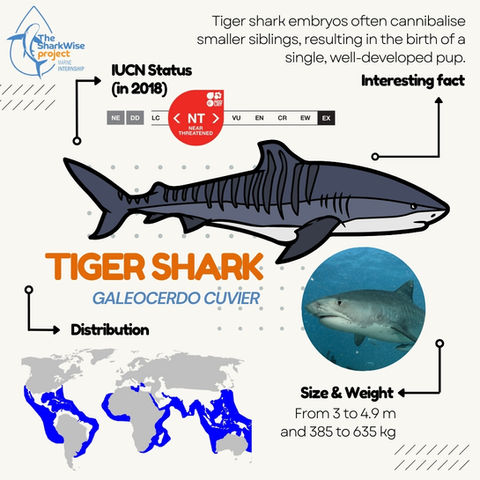
Shark research philosophy
Species in Focus
Our strategic focus on the study species—Blacktip Sharks (Carcharhinus limbatus), Ragged-tooth Sharks (Carcharias taurus), Bull Sharks (Carcharhinus leucas), and Potato Bass (Epinephelus tukula) arise from careful consideration of knowledge gaps, accessibility, existing logistics, financial resources, and eco-tourism potential. We aim to deepen our understanding of their behaviour and ecology and align our efforts with sustainable practices. SharkWise strives to contribute meaningfully to marine conservation and foster eco-friendly engagement with these remarkable creatures.
Long-Term Projects

Ongoing Projects Supported by the SharkWise Project
The Sharkwise Project supports students by providing the necessary logistics to collect data for their projects permitted by DFFE (Department of Forestry, Fisheries and Environment). Some of these projects include environmental DNA (eDNA), genetic data analysis and conservation genetics, exploring the colour preferences of sharks, and photo-identification techniques to catalogue and track individual sharks, all contributing to long-term monitoring efforts.
Shark Biodiversity Assessment Using eDNA Methods.
Supervisors: Prof Conrad Matthee and Dr Sara Andreotti
PhD Student: Kristina Loosen
This project aims to define the effectiveness of using eDNA methods to detect sharks, and to identify and monitor the distribution of sharks around the South African coastline. Novel cutting edge genetics analyses, using environmental DNA (eDNA) obtained from water samples, is rapidly becoming a non-lethal, relatively cheap and efficient alternative to traditional methods, for assessing local marine biodiversity. To date eDNA hasn’t been used in South Africa to assess shark biodiversity, thus this study aims to provide the baseline for the application of this cutting-edge technique for efficient shark monitoring. Water sampling will occur around the entire coastline of South Africa to estimate from the presence of species-specific sharks DNA in the water samples and potentially the abundance of the different species.
The Role of Colour and Contrast Discrimination in the Predatory Behaviour of Oceanic Blacktip Sharks.
Supervisors: Prof Michael Cherry and Dr Sara Andreotti
MSc Student: Cicely Nagel
The aims of this study are (1) to determine whether oceanic blacktip sharks have the ability to
discriminate between targets of different colours (2) to observe whether the sharks have a specific
preference to a certain colour or contrast over another and (3) to analyse the morphology of oceanic
blacktip sharks’ eye and determine the physiology underlying their visual acuity.
During this experiment, a combination of behavioural experiments, physiological models, and data
from micro spectrophotometry of elasmobranch eyes will be used to give the most comprehensive
review to be able to determine the ability of organisms to perceive colours.
Application of Genetic Data Analyses to Estimate the Effective Population
Size of South African Blacktip Sharks (Carcharhinus limbatus).
Supervisors: Dr Sara Andreotti and Prof Conrad Matthee
MSc Student: Tyler Stenning
This study aims to provide a recent assessment of the blacktip shark population visiting the MPA of
Aliwal Shoal (Western Indian Ocean). Genetic analyses on mtDNA and microsatellites markers will be
used to estimate the effective population size, genetic diversity, and global connectivity of black tip
sharks. The results of this study will assist in better informed management policies for the species.
Sharks Long-term Monitoring with Photographic Identification Project
Supervisors: Dr Sara Andreotti, Prof Conrad Matthee
MSc Student: Megan Maroen
This project is a continuation of the 2009-2011 collection of photographic identification of white
sharks, by using the newly developed Identifin software (Andreotti et al. 2018), and other software,
to investigate the use of photo-id on copper sharks, oceanic blacktips, bull sharks, sand tiger sharks,
potato bass, for non-invasive population estimates.








